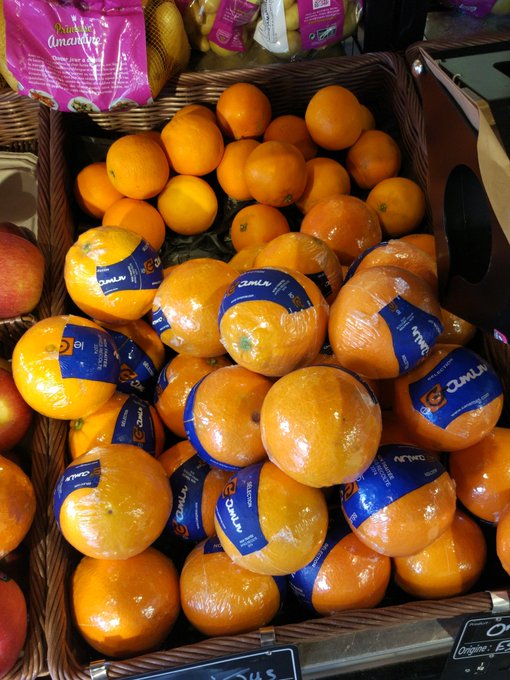Plastic Attack: An Effective Initiative To Combat Overpack
An inverted butterfly effect. It is, in any case, the consequences of the first "plastic attacks". The principle is simple: customers go to a supermarket to do their shopping and leave all unnecessary packaging inside the store. On June 2nd, 2018, citizens decided to organize an awareness campaign on the overconsumption of plastic in a Parisian supermarket.
"The goal is to make customers aware of the overconsumption of plastic but also to alert supermarkets to the uselessness of all these packagings," says Fanny Vismara, co-organizer of this action. "Above all, it is important to raise awareness among politicians", adds Belgian Frédéric Sioen, who coordinates plastic attack operations around the world via a dedicated Facebook page. The citizen has published a petition so that, in Belgium, politicians legislate and reduce the production of plastic. In Paris too, the organizers want to encourage parliamentarians to act through a petition.

These actions are inspired by the great idea of English. The first operation of "Plastic attack" took place at the end of March in Great Britain. To draw everyone's attention to the astronomical amount of plastic waste we produce, some 20 customers at a Tesco supermarket in Keynsham, near Bristol, had extracted the purchased products from their packaging and left them there. Result: three full caddies filled with useless plastics. The operation caused a stir and prompted the British brand to lobby to reduce plastic packaging. A petition asking British supermarkets to reduce packaging already brings together 500,000 signatures.
Shortly after, Brussels followed suit with the British and, rebelotte, this time it was the turn of the group Delhaize to make commitments on the reduction of plastic packaging.
"Ridiculous packages" bloom on the canvas
The success of these actions is such that all over the world are preparing "Plastic attacks". Like Paris, many cities will organize next June 2 operations to encourage politicians and citizens to review their habits and stop the consumption of plastic packaging for single use. Thousands of people have already registered in Gant, Belgium, but also in the Netherlands, Canada, Washington, Peru, Spain, Switzerland, India, Australia, South Korea ...
These actions are accompanied by a Greenpeace campaign. Since last month, photos of apples or bananas protected by plastic films or strawberries placed individually in small foam packs have been blooming on the social networks ... accompanied by the hashtag #RidiculousPackaging and #BreakFreeFromPlastic with the names of the companies ... advertisements they would do well!
The NGO behind this campaign is putting pressure on companies to reduce packaging. Greenpeace points out that plastic pollution continues to contaminate the oceans and that 90% of the plastic produced is not recycled. More than a million people have already signed the association's petition to ask several companies including Coca-Cola, Pepsi, Nestle and McDonald's to stop using single-use plastic.
Every year, between 6 and 8 million tonnes of plastics are released into the sea, killing hundreds of thousands of birds and marine mammals. According to a report from the foundation of sailor Ellen MacArthur, if nothing changes, the oceans could contain more plastic than fish by 2050. Today, we estimate there are about 150 million tonnes of plastic waste in the oceans. If the consumption of plastic continues at the same rate, the ocean should contain 1 ton of plastic for 3 tons of fish in 2025 and 2050, more plastic than fish, in terms of weight, "says the study. Unless businesses and politicians take the problem seriously... the citizens are ready to take action to change things.

